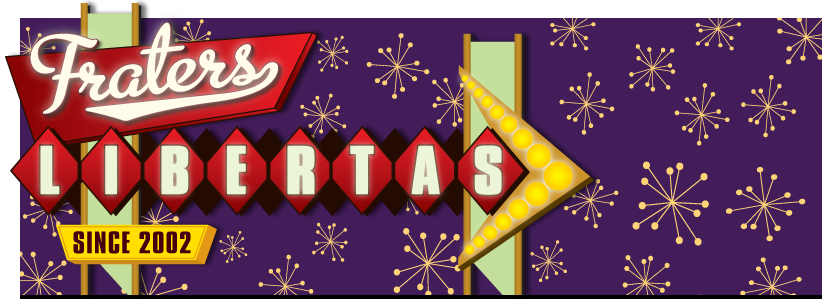I've always liked the American middle class, since I first encountered them forty years ago. What's not to like? Middle-class Americans are polite and hospitable, generous and kind, law-abiding and patriotic. This is indeed, as my colleague Florence King once tagged it, the Republic of Nice. The problem with being so nice, however, is that the un-nice will take advantage of you. They'll bully and manipulate you. They'll turn you against your neighbor and make you feel bad about yourself, using your own generous values as a weapon against you, in a sort of politico-cultural ju-jitsu.The individual components he identifies are obvious to anyone paying attention, but the way he draws it all together is a perspective on the issue that I hadn't considered before. Yet it seems exactly right, hiding in plain sight amid the chaos of the debate.
American political life today isn't really a struggle between two parties; it's a struggle between the political and the un-political -- between, on the one hand, activist ideologues and cynical rent-seekers, and on the other, mild middle-class types who'd rather just get on with living their lives and raising their families while bothering with politics as little as possible. Class-wise, it's not the rich against the poor: It's the rich and the poor united against the middle. The overclass has allied with the underclass to milk the middle class. By way of fortifying the alliance, the overclass is keen to import tens of millions of high school dropouts from Mexico, to keep the ranks of their underclass allies well filled up with cannon fodder, and to make it easier to browbeat the middle class with charges of racism if they dare to raise any objection to alliance advances and usurpations.
That's the context in which this fuss about the Arizona law should be seen. The United States today is a gigantic press, the overclass looking for cheap profits and cheap grace, the underclass looking for free benefits and make-work jobs in the public sector, and in between them the poor old American middle class having the blood squeezed out of it to pay for everything. Should the middle class try to rebel, as they have with the Tea Party movement, all their good-natured values are turned against them. They're told that they are full of "hate," when there has never in the history of the world been a body of people less inclined to hatred than middle-class Americans. They're told they are Nazis, when their fathers and grandfathers suffered and died to destroy Nazism. They're told that they're nativists, when they've been turning the other cheek for decades as foreigners pour into the country in defiance of our laws. They're told they're "anti-immigrant," when half their own parents and grandparents were immigrants.
As the overclass sneers at them and the underclass threatens them, America's middle class soldiers on, keeping the country going, keeping the lights on, getting up on cold winter mornings to feed their families, perform their civic duties, mind the laws, pay their own bills, and then pay all over again to support the underclass, even as the underclass swells with foreign scofflaws, swamping our schools, hospitals, courts, and prisons.
Well, guess what: middle-class Americans can still vote. Because they are too decent to care about politics, they don't always vote wisely, but once in while they get to have their own way, passing a law that throws sand in the gears of the overclass-underclass alliance. Then all hell breaks loose from both ends of that alliance. The overclass lays down thundering barrages of rhetoric about "hate" and "Nazis" and "profiling," while Al Sharpton and La Raza mobilize to march and break a few middle-class windows. That's what you've been seeing this week: the outrage of the politicals, that the un-politicals dare to defy their will -- which is, as they never cease to remind us, rooted in the highest ideals of morality and social justice, never in self-interest. Not at all!
His proposed remedy is correct as well. At least for now, the middle class has the numbers to win elections. Which explains why the primary tactic of the Democrats (i.e., the coalition of the underclass and overclass) is threats and slander. The only thing that can stop the political victory of the middle class in this next election is getting the middle class to believe its values are unworthy of victory. Which is why the Democrats will be trying to convince the middle class that they are in fact racists, Nazis, teabagers, etc., all the way to November.
UPDATE: Michael Barone's essay leading off the 2010 Almanac of American Politics identified the "Obama top-and-bottom coalition" through analysis of exit polling results. He referenced it in subsequent columns, including here at the Washington Examiner. Doesn't this sound a little like what Derbyshire hypothesizes on above?
Barack Obama carried voters with incomes under $50,000 and those with incomes over $200,000 and lost those with incomes in between. He won large margins from those who never graduated from high school and from those with graduate school degrees and barely exceeded 50 percent among those in between.
The top-and-bottom Obama coalition was in effect a coalition of those dependent on government transfers and benefits and those in what David Brooks calls "the educated class" who administer or believe that their kind of people administer those transactions. They are the natural constituency for the culture of dependence.
